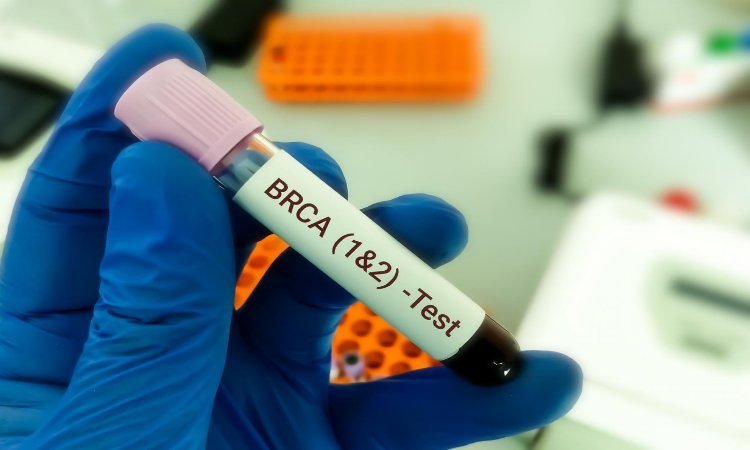Breast cancer has been one of the most common cancers in the world, as well as the most prevalent cause of cancer deaths among women. In India, one in nine people is likely to develop cancer in their lifetime. Lung and breast cancers are more common in males and females, respectively. Among children (0-14 years), lymphoid leukaemia (boys: 29.2% and girls: 24.2%) is more common. The incidence of cancer cases is estimated to increase by 12.8 per cent in 2025 as compared to 2020. BRCA1 and BRCA2 gene mutations are some of the genetic factors that have received tremendous interest in their effects on hereditary breast and ovarian cancer syndromes.
What is BRCA Testing?

BRCA testing is a genetic screening method that detects mutations of the BRCA1 and BRCA2 genes. These genes are supposed to repair damaged DNA and prevent uncontrolled cell growth. Loss of tumour-suppressing abilities is caused by mutation, which radically exposes anyone to the dangers of breast, ovarian, prostate, pancreatic tumours and melanoma. BRCA mutations are inherited and transmitted to children, but are found in very few.
Prevalence and Risk
BRCA1 mutation carriers face a lifetime breast cancer risk of up to 72%, while those with BRCA2 mutations face around 69%. In addition to breast cancer, carriers of BRCA mutations are at a very high risk of developing ovarian cancer, which is about 44% in cases of BRCA1 and 17% in BRCA2. These increased dangers reiterate the need to identify the mutation carriers with genetic testing early on.
Who needs to think about BRCA Testing?
The testing is recommended for people with:
- Individual or family history of breast, ovarian, pancreatic or prostate cancer.
- Breast cancer at a young age (below age 50 years)
- TN-BC in patients under 60 years old.
- Several relatives with related cancers.
- Known family BRCA mutations
- Ashkenazi Jewish heritage
Breast Cancer Prevention
BRCA testing is a key interventional aspect in prevention, as it allows:
Individualised screening: Mutation carriers can get diagnosed sooner, with sensitive imaging methods like mammography, breast MRI, etc. Additionally, this can promote timely assistance and reduce the chances of any malignancies developing.
Preventive methods: Patients can have preventive surgeries, such as mastectomy, ovarian and fallopian tubes removal, as well, to decrease the risk of cancer.
Informed treatment options: Patients already diagnosed with cancer can undergo BRCA gene mutation testing, which will help them discuss treatment options and access personalised treatment plans.
The Broader Implications of BRCA Testing
BRCA testing not only provides personal benefits but also alerts families to an inherited risk and other health issues. This proactive strategy has significant advantages for the overall health of the population, as early interventions can reduce the risk of cancer. Genetic counselling should be accompanied by an interpretation of the results and the management of both emotional and practical risk.
Access and Awareness
As genetic technologies continue to develop and improve, BRCA testing is now more accessible. Trusted genetic testing laboratories, such as MedGenome, even offer panel testing that can test for BRCA mutations and other cancer genes. Testing early in the diagnosis will provide an opportunity for people to avoid unnecessary surgical procedures and focus on individualised preventative care that reflects a person’s actual risk level.
BRCA testing represents an important step in the diagnosis and prevention of breast cancer, in addition to tailored treatment plans. The combination of genetic testing with lifestyle management, regular check-ups, and monitoring is the best way to minimize the impact of breast cancer both at the individual and the societal level.







